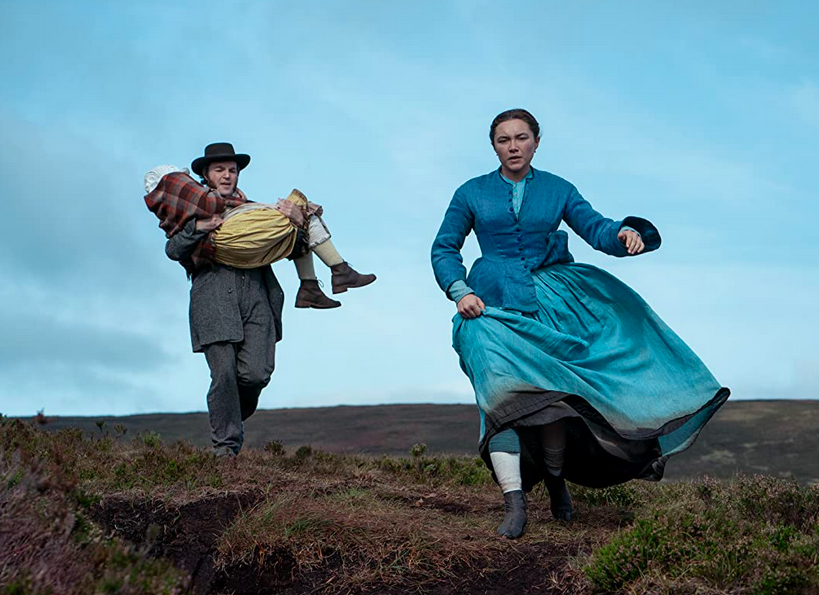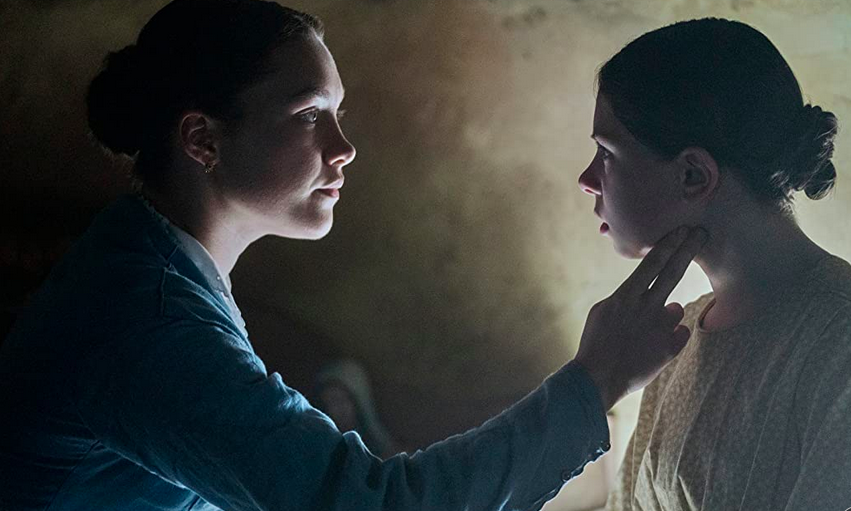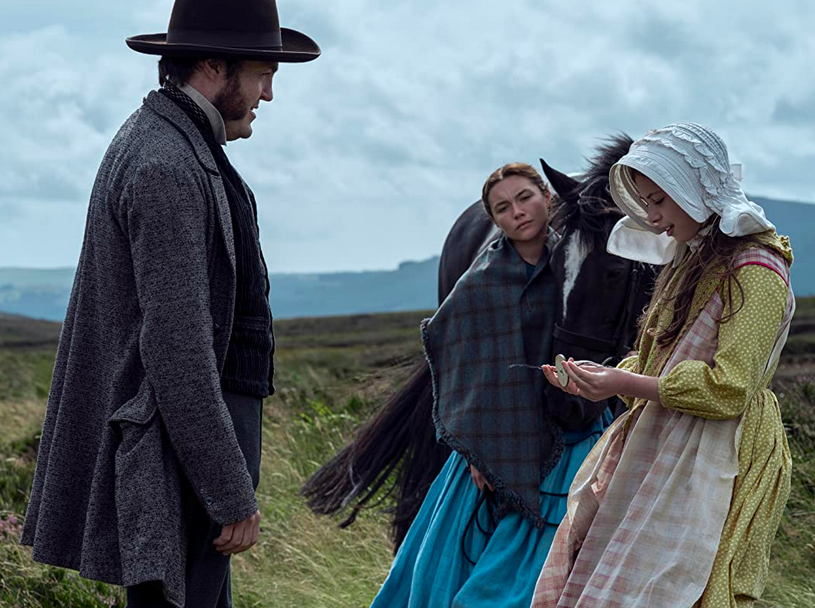The Wonder (dir. Sebastián Lelio, 2022) — Review
Irish suffering has long been considered rather exotic in the popular imagination — a trope which took off during the post-Famine period depicted in The Wonder. Sebastián Lilo's sprawling meditation on the nature of belief relies heavily on an uncynical viewer, and a very specific interpretation of what might otherwise be deemed “poverty porn." Even for doubters, the apparent popularity of that view, reflected in the film’s critical acclaim, adds some heft to the case made by Lilo and screenwriter Emma Donoghue.
Opening on a sound stage, with a narrated introduction, The Wonder draws its boundary between material ‘fact’ and narrative ‘reality’ with all the bombast of bells ringing for Mass. Based on real records of Ireland’s ‘fasting girls’ in the late 1800s, the film follows Liverpudlian nurse Lib (Florence Pugh), sent to the boondocks to investigate the case of 11-year-old Anna (Kíla Lord Cassidy). Anna, and her fanatical Catholic family, insist that she has miraculously gone months without food. Lib and the viewer will think otherwise. The Wonder plays on its glaring visual similarity with other recent period dramas — those featuring Pugh — to emphasise a difference in tone. Rather than offering some criminal or supernatural mystery — or indeed much by way of plot —the film turns into a snowballing rejection of logic or rationality, one which relies on the viewer to acknowledge their own part in the delusion, via pointed, fourth wall-breaking stares.
Donoghue’s breakout novel Room was told from the perspective of a five-year-old, born into captivity with his kidnapped mother. The Irish author returns to a similar theme for this screenplay, overlapping heavily with more nationally-specific constants of religion and repression: the true ‘wonder’ here is the innocence and imagination of the child, which proves powerful enough to reshape reality for adults. Donoghue’s relentless optimism, and insistence on the power of belief, speaks to the well-oiled machinery around this particularly Irish narrative: embracing the fetish around suffering.
Immediately referencing the Famine, the film sets about mining a rich seam of recognisable grievances: poverty, religious trauma, and of course the taboo-breaking domestic horrors associated with such conditions. The Irish Midlands appear in their usual role as a primitive bogland: a function exploited by storytellers of various creeds to turn gallingly mundane suffering into something supernatural. This is a rite all of its own, where the audience must treat moments of turgidity and clunking symbolism with, of course, religious deference.
Everyone’s rituals are sent up to some degree: although some Irish viewers may rankle at the unrelentingly negative depiction of life in the Midlands; with its oppressive religion, alcoholism, and illiteracy, these (historically accurate) flaws are mirrored in Lib. Sidestepping the traditional beef between Irish and English, The Wonder portrays the beleaguered nurse as an angel of modernity, with Pugh masterful as ever portraying her signature aura of ‘righteous and gaslit’. However, Pugh’s typecasting is as much a part of the metatextual charade as shots of the film set: sweeping in to nurse Anna with increasingly implausible feats of heroism, Lib evokes a deliberate, literal hagiography, even as a romantic subplot strains belief and patience. By the end, lesser quirks of huffing laudanum and ritualistically drinking her own blood have been thrown to the wind.
Lilo does a beautiful job of visualizing the duality of despair and hope present in its lead characters, the landscape around them, and a torrent of deliberate ambiguities which can only be resolved in the realm of fantasy. Lib’s solution of the ‘mystery’, and its implications about provincial Irish society in the mid-19th century, does nothing to resolve the crisis. Rather, her outside perspective, and justified scorn for the sexist, abusive, superstitions at work, run into a brick wall with the authorities (led by a gloriously horrid Ciaran Hinds). Nonetheless, offering the choice between a ‘real’ past — based in repression, suffering, and extinction — or an imagined, if fantastical future, The Wonder does a decent job of arguing for the latter. The story’s resolution may veer into pure wish fulfillment, but the unabashed fervency of that wish — the stubborn, fanaticism which marks not only Anna, but many other heroes of Irish national myth — will encourage viewers to indulge its tentative happy ending.




